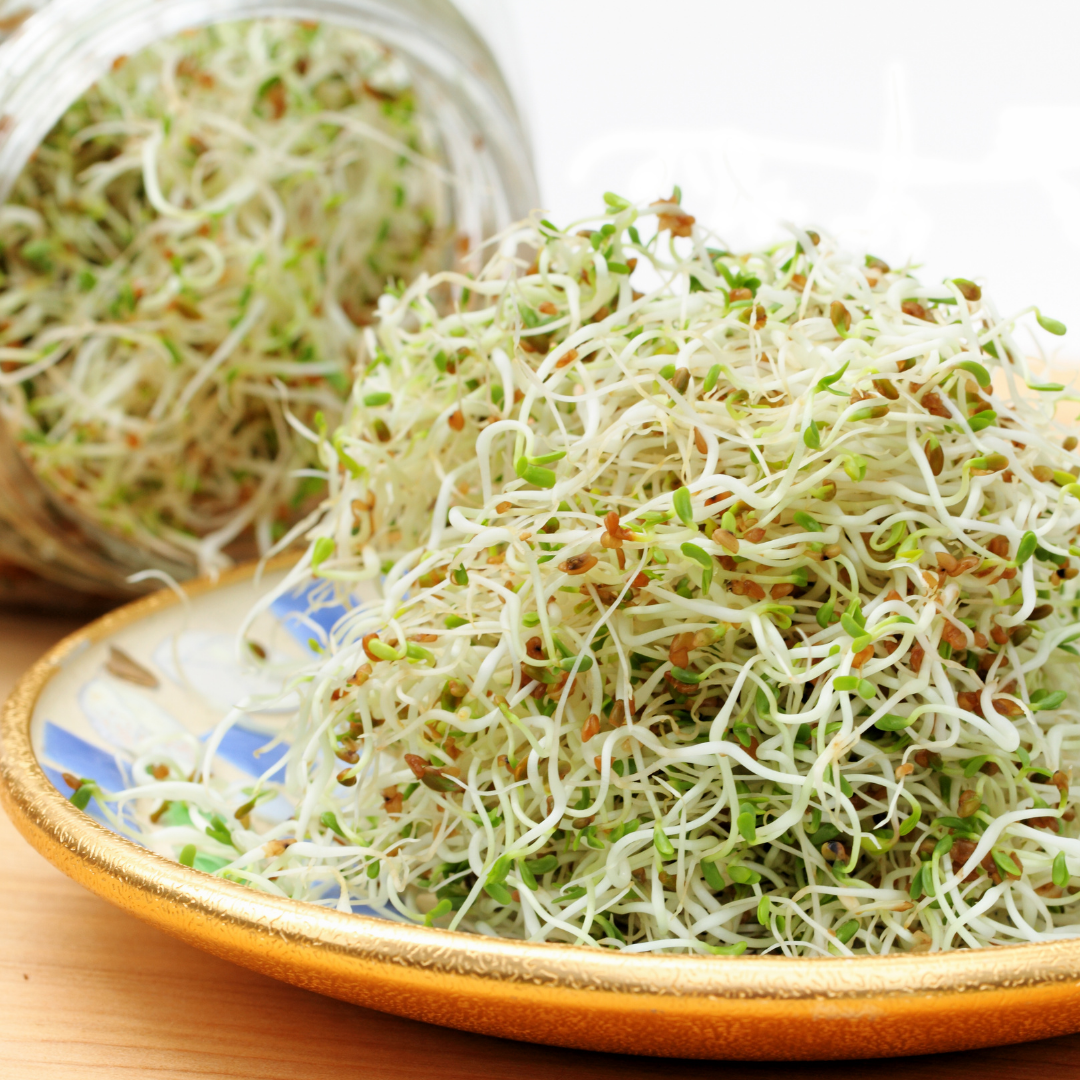health and nutritional benefits of Alfalfa

Origin, Distribution and composition
Alfalfa or Medicago Satina is nutritionally one of the most versatile herbs yet discovered. It is a leguminous herb which grows up-to 50 cm in height. It has rich green alternate leaves, purplish flowers and adapts itself to widely varying conditions of soil and climate.
It appears to have been discovered by the Arabs who called it the "king of kings" of plants and the "father of all foods". They have used it for centuries to feed thoroughbred horses. The Persians recognized it as a healing grass.
It is a valuable source of vitamins A, B, D, E. It also has some vitamin C and K. The rich quality, quantity and proper balance of calcium, magnesium, phosphorus, chlorine, sodium, potassium and silicon is of special value in this herb. All these elements are needed for the proper functioning of the various organs in the body.
Investigations made by the US Department of Agriculture have revealed that it contains one and a half times more protein than grains like wheat and corn and that its carbohydrate content is only half of that found in grains. It is one of the richest sources of dietary fibre and chlorophyll.
Nutrition and healing properties of alfalfa
The seeds, leaves and stems of the plant have important properties-derived from the roots of the plant which reach up to 12 meters into the subsoil and absorb the elusive trace minerals from the depths.
1. DIGESTION
The most important of these trace minerals is manganese, which is vital to the human digestive system.
It is an outstanding alkalising food. It contains 130 to 142 mg of alkali-forming elements in every 100 grams. These make it a valuable remedy for several ailments. It is slightly laxative, digestive, diuretic and serves as an excellent tonic.
It augments the peristalsis or movement of the bowels, improves digestion and ensures better assimilation of food. Include them in your diet as sprouts, you can use them in salads and soups.
2. HEART DISORDERS
In the form of juice, has been found very effective in most arterial problems and heart diseases. It also helps in lowering cholesterol. Studies have shown that it lowers total cholesterol by lowering LDL (bad) cholesterol and trygricerides and increasing HDL (good) cholesterol.
The juice of fresh alfalfa, however, is strong and potent and is best taken with carrot "juice. In this combination, the individual benefits of each juice are intensified.
3. Dropsy
An effective diuretic, it acts gently upon the kidneys. It can be successfully employed in the treatment of the inflammation of the bladder and dropsy, a disease marked by accumulation of fluid in the body.
4. respiratory DISORDERS
The juice, as a rich source of chlorophyll, is useful in respiratory disorders and discomforts, particularly those relating to the sinuses and the lungs.
5. STOMACH DISORDERS
The seeds, known as "king of sprouts", are of immense value in the maintenance of health. Their daily use helps build up an immunity to stomach distress. In the form of tea, it provides vital alkalising benefits for hyper-acidity.
It tends to control the flow of hydrochloric acid, aiding the action of the gastric enzyme, pepsin. The addition of mint to the tea helps settle disturbed stomach after a rich meal. It also refreshes the palate and makes an excellent morning drink.
6. Arthritis
The tea, especially made from the seeds, is of great value in arthritis, as it helps alkalise the food residues in the body. Three to four cups of it should be taken daily for at least two weeks.
7. Hair disorder
The juice of this herb in combination with those of carrot and lettuce, if taken daily, helps the growth of hair to a remarkable extent. Such combination of juices is rich in elements which are beneficial for the roots of the hair.
8. High blood pressure
The herb is an effective remedy for high blood pressure. It contains all the elements necessary for the softening of hardened arteries, which characterise high blood pressure.
methods of use
The herb is used in many ways or forms. The seeds are useful in the form of sprouts. They are delicious and nourishing in salads and soups as well as in sandwiches. Alfalfa can be used in the form of juice extracted from its leaves.
It is also used extensively in the form of tea, which is made from seeds as well as the dried leaves of the plant. The tea is prepared by boiling alfalfa seeds in a pan with the lid on, for half an hour.
It is strained, squeezing the seeds dry, and allowed to cool. Raw honey maybe added to taste before use.
SAFETY
It’s important to speak with a healthcare professional or work with them closely, if you are considering using any herb to treat those symptoms.
Also be mindful of the high risk of bacterial contamination. It’s a good idea to take precautions to ensure the sprouts are grown and stored in safe conditions. The best way is to sprout your own seeds and beans. You can buy the sprouter for your home from the link below.



